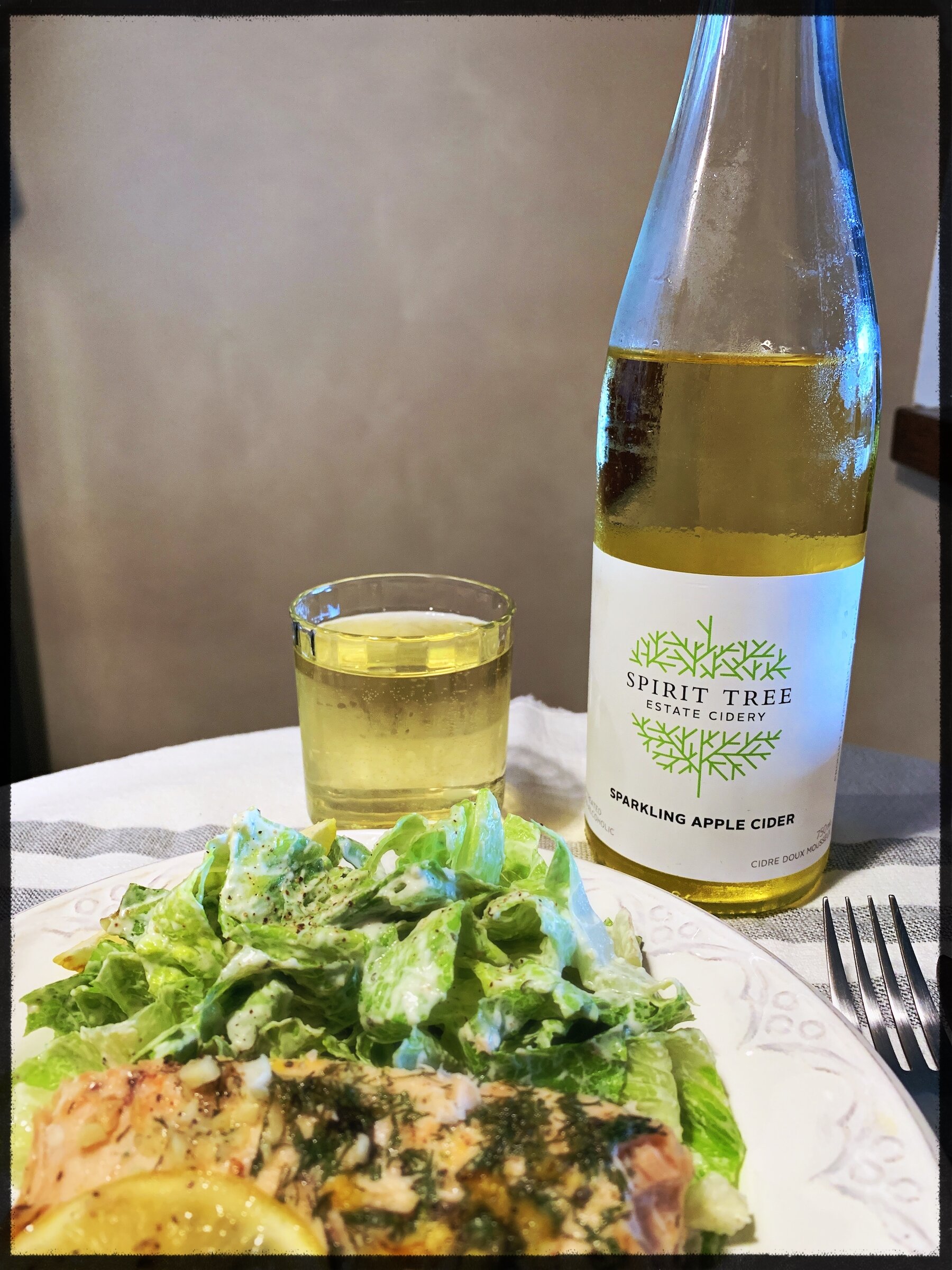Take another look at cider: Sparkling alcohol-free ciders are refreshing, delicious, and worth the pour
/(Photo by Amanda Klamrowski from Pexels)
Since apples are found around the world, it’s hard to pin down exactly when and where the first cider was produced. What we know is that apples have existed as a wild fruit since prehistoric times and have been cultivated for more than 3,000 years. Cider is an ancient drink made from fermented apple juice, first made with crab apples.
Ciders are broken down into two styles, standard (modern and heritage apples) and specialty (an open category for experimentation) and then into two varieties—hard and sweet. The hard contains alcohol and the sweet is alcohol free.
Like breweries, wineries, and distilleries, cideries have taken cider to new levels, producing a variety of flavourful and unique craft cider offerings, including non-alcoholic sparkling ciders.
Award-winning, organic small-batch producer of hard cider West Avenue Cider House at Somerset Orchards in Flamborough, Ontario hangs its hat on heritage apples, which are rare in Canada. It planted thousands of trees to make sure heritage ciders live on. From that faithfulness to heritage apples come two intensely apple-forward non-alcoholic sparkling ciders (Pippin and Cherry Pippin).
A fruit and cheese board: apples, pears, crackers and three cheeses – Gunn’s Hill 5 Brothers (Ontario), Laliberté (Quebec) and Saint Agur (France). Served with West Avenue Cider House’s Pippin non-alcoholic sparkling apple cider.
“Growing up in the UK, cider has always been a huge part of mainstream pub life,” said Chris Haworth, who co-owns West Avenue with his wife. “When I first came to Canada in 2005, I quickly realized that the only cider available was the cheaper, more mass-produced ciders from the UK, yet Ontario is the apple growing capital of Canada. I had an inkling a locally made cider would bode well in Ontario.”
The moment you crack the cap off West Avenue’s Pippin sparkling apple cider, the intense aroma of apples fills the air. Pippin pours a deep golden colour that is almost copper. It’s full-bodied, fruit-forward, both tart and sweet with enough carbonation to wake up the palette through to the last sip. The sour Montmorency cherries in the Cherry Pippin deliver an added tartness that balances perfectly with the heritage apples.
Ontario produces the most apples in Canada with fall being the province’s apple season, providing the freshest apples to make cider. Fortunately, you can make cider throughout the year with stored apples, and most apple varieties can and are used. The most traditional apples used in cider are cider apples, which contain a higher sugar content but are more bitter and tannic.
Sparkling apple cider-glazed salmon and a creamy yogurt-based Caesar salad. Served with Spirit Tree Estate Cidery’s non-alcoholic Sparkling Apple Cider.
In 2009, Thomas Wilson and Nicole Judge opened Spirit Tree Estate Cidery. The Wilsons are fourth generation farmers in Caledon, Ontario who dreamed of creating a modern cidery that honoured old-world traditions. Today, the cidery produces three alcohol-free sparkling ciders: apple, apple cranberry, and pear.
“Our goal with Spirit Tree was to build a cider mill so that no apple left the farm,” said Wilson. “By turning (not perfect) apples into cider, both non-alcoholic and alcoholic, we were turning these apples into products that made money. The craftsmanship of turning our apples into a quality craft beverage was too hard to ignore.”
Spirit Tree’s Sparkling Apple Cider is pale gold in colour with a slight honey-apple aroma. Its light carbonation helps animate the sweet and slightly tart flavours of the tree-ripened 100% Ontario cider apples. Adding marsh grown cranberries to the apples adds another layer of crisp tartness to Spirit Tree’s Sparkling Apple Cranberry Cider. Although not made of apples, the Sparkling Pear Cider hits all the sweet notes of a freshly picked pear.
Like wine, beer, and spirits, there is a science to the final cider product, including the blending of apples to create the right balance of acids, sugars and tannins, according to Wilson. And the only difference between making hard and sweet ciders comes down to the fermentation process, which is excluded for sweet ciders.
“Most of the processes are the same,” said Wilson. “The apples are turned into juice, clarified and filtered and then bottled. The only thing separating the two is the fermentation.”
For Haworth it was more than the process that led West Avenue to create sparkling cider. “We made the non-alcoholic version of our cider ‘Pippin’ for our kids, originally,” he said. “They knew mom and dad were obsessed and working hard on cider and they wondered why they couldn’t have any. So, we thought we’d make one and dedicate it to all the kids (and non-drinkers) out there.”
“By turning (not perfect) apples into cider, both non-alcoholic and alcoholic, we were turning these apples into products that made money. The craftsmanship of turning our apples into a quality craft beverage was too hard to ignore.”
When asked to dispel any myths about cider, both Wilson and Haworth agree that cider has evolved.
“The old myth of cider being sickly sweet and giving the worst headache the morning after, definitely doesn’t wash with anything West Avenue produces,” said Haworth. “Cider has evolved so much since the turn of this century.”
Like beer, wine, and spirits, cider is unique and its manufacturers focus on the craft.
“Cider long ago had a bad reputation for being a cheap drink,” says Wilson. “Thanks to renewed interest in traditional cider, craft cider has come back and is considered a new beverage. This means consumers have no preconceptions and producers are free to experiment.”
Give Spirit Tree and West Avenue sparkling ciders a try, you won’t be disappointed.
Antoine Tedesco,
Contributor, Alcohol-free Beer & Cider
Antoine brings his love of food and life to Some Good Clean Fun’s beer and cider reviews. From journalism to government to charities and non-profits, Antoine’s passion is telling compelling and impactful stories. He loves anything that makes his taste buds smile and his ears dance.








